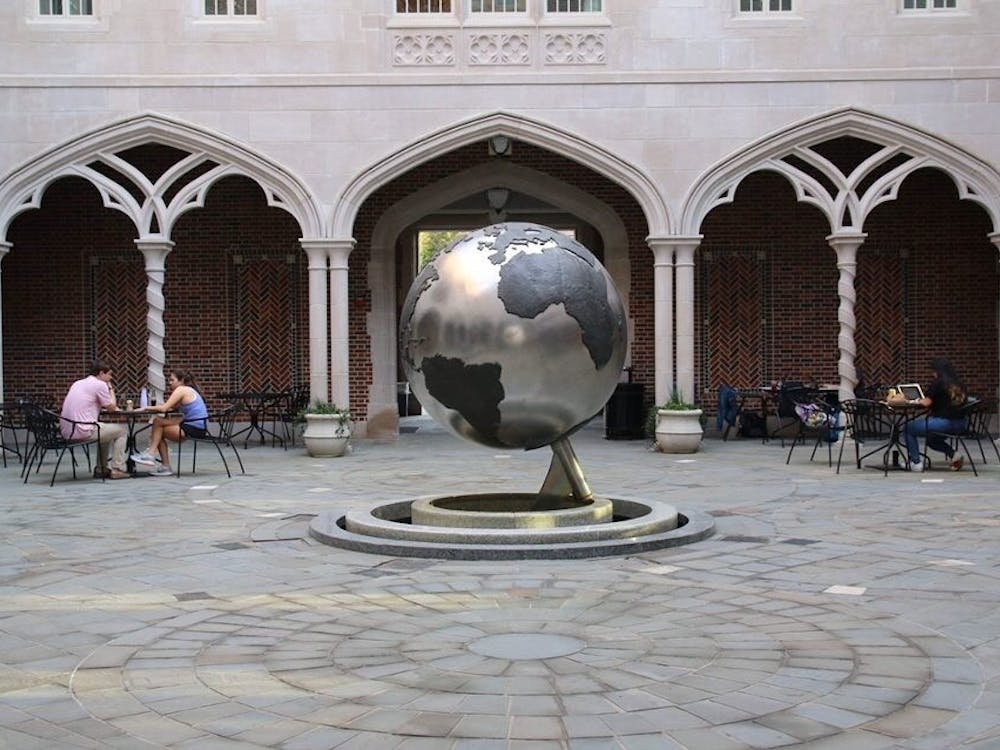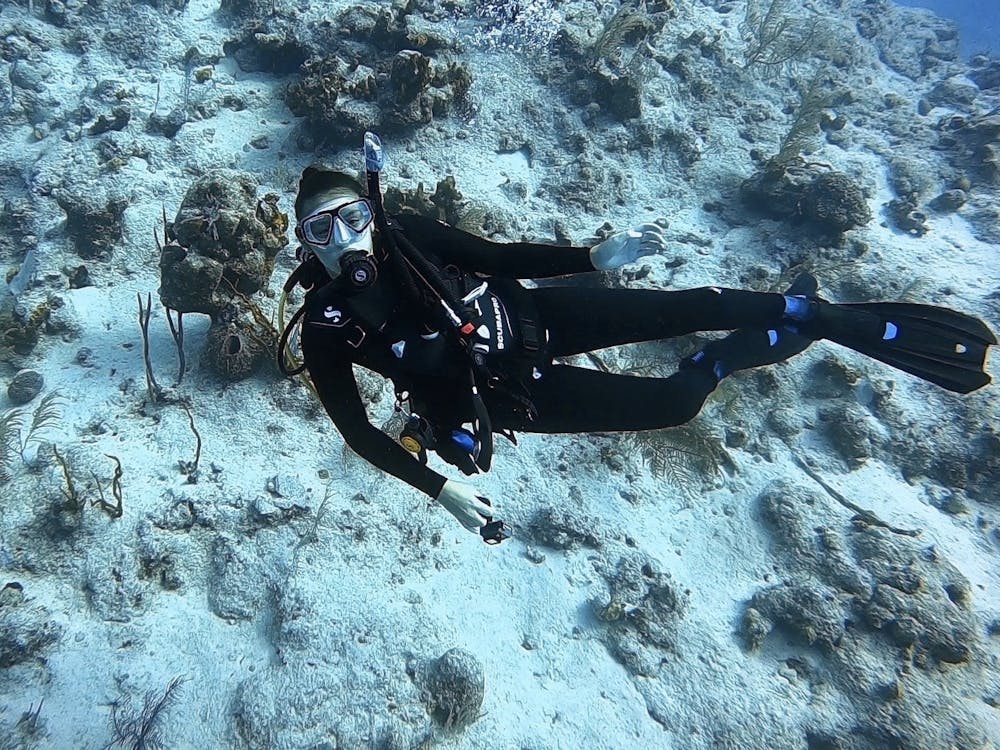LONDON -- For those of you who might have forgotten, Nov. 11, was Veterans Day. In the United States, the day is meant to honor all veterans who have served, both in peacetime and wartime. Unlike Memorial Day, which honors those who have died in service to their country, Veterans Day is largely intended to thank living veterans for their service and acknowledge that all those who served have sacrificed and done their duty. Other countries celebrate this day as well, and over the past two weeks, I have been learning a lot about how Britons view the holiday.
Around the end of October, I noticed red paper flowers pinned to the jackets and coats of people I passed on the streets. My curiosity grew, and I finally asked one of my British classmates about it. He told me that they were poppies, worn as a symbol of remembrance for veterans. In slight confusion, I told him that I was under the impression most countries celebrated on November 11 - the day the armistice was passed and World War I unofficially ended. Slightly amused at my naivety, he told me that they do celebrate on that day, but you have to properly start preparing for it in the weeks beforehand.
Our conversation piqued my interest even more, and I started researching where the poppies were coming from and what they meant. My quest became easier when a few days later I saw a flyer on campus that advertised the need for "Poppy Collectors" to stand on streets and help collect money for the Poppy Appeal. I took my new information to Google, and was led to the Royal British Legion Web site.
The Royal British Legion is a charity that provides support to those who have served or are currently serving in the Armed Forces. Every year, they organize the Poppy Appeal to raise money and show support. Throughout the country, volunteers stand on streets with buckets for change and baskets full of poppies. Make a donation and you receive a poppy to wear.
The significance of wearing a poppy dates back to 1918, when WWI ended and people wanted a way to remember those who had died. Moina Michael, the American war secretary, conceived the idea of selling poppies after being inspired by John McCrae's 1915 poem, "In Flanders' Field."
The first stanza of the poem reads: "In Flanders' fields the poppies blow / Between the crosses, row on row, / that mark our place: and in the sky / The larks, still bravely singing, fly / Scarce heard amid the guns below."
In the United States, poppies are traditionally worn on Memorial Day, when we remember those who died, not on Veterans Day. But in Britain, Nov. 11 is the British's day to remember those who have sacrificed their lives for their country.
On Remembrance Day itself, the nation has a two-minute silence at 11 a.m. In addition to this, they also celebrate Remembrance Sunday on the Sunday before Nov. 11.
I had the amazing opportunity to attend the National Service of Remembrance this past Sunday and participate first-hand in this holiday.
Every year, there is a service in London at the Cenotaph, a large monument located on Parliament Street that was erected to honor those who have died in war. Before the official ceremony starts at 11 a.m., military bands and veterans march toward the monument. Members of the Royal Family attend, and the Queen lays a wreath of poppies at the base of the Cenotaph as a tribute to all of those who have died in war. A few words are spoken by the Archbishop, other officials lay wreaths and a few songs are sung. The ceremony ends with the veterans parading back down the street past the Cenotaph, placing poppies and wreaths on the monument as they pass.
Two days before this ceremony, I visited the Imperial War Museum, which had large exhibits on both World Wars, among other things. Especially in the World War II section, I was struck by the immense sacrifice of all of those involved. Whether it was reading about all the children who were sent out of London into the countryside, seeing a replica of the bomb shelter that would have been in most London homes, learning about the people who lived in the Underground Stations to protect themselves from the bombings, calculating how much food citizens were allowed to buy because of the rationing, or listening to the stories of the men and women who gave their time and lives, I realized how much I owe this country as well.
The protection of freedom and liberty is a cause that many nations have taken up, and in events like World War II the benefits of cooperation is evident. I am proud to be an American and grateful for all American soldiers past and present, but I am also grateful for all the other nations who fought for my freedom as well.
Enjoy what you're reading?
Signup for our newsletter
Watching the parade of veterans march by on Sunday was an emotional event. In a city where many buildings still show the damage from WWI bombings, the impact of war, especially World War II, lives much closer to the surface. It has been inspiring to see so much patriotism in the everyday lives of the citizens. I'll be bringing my poppy back to the United States to wear as a symbol of my gratitude to all of those who have sacrificed for freedom. I realize this article is coming a few days after Veterans Day, but it is never too late to be thankful.
Support independent student media
You can make a tax-deductible donation by clicking the button below, which takes you to our secure PayPal account. The page is set up to receive contributions in whatever amount you designate. We look forward to using the money we raise to further our mission of providing honest and accurate information to students, faculty, staff, alumni and others in the general public.
Donate Now

